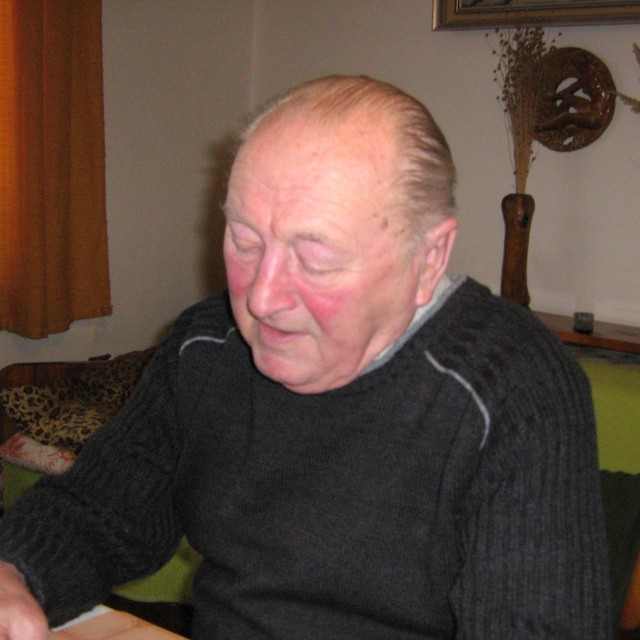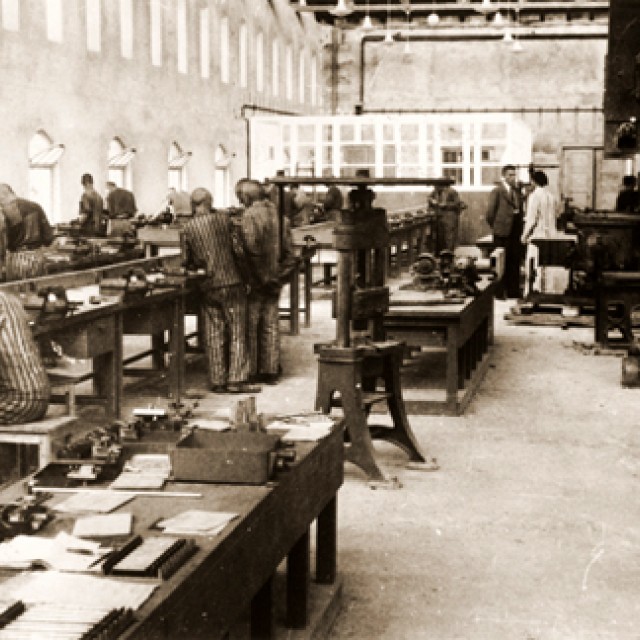The Polish capos were the worst
František Cenkl joined in June 1943 one of labour camps in Auschwitz III. (Buchenwald – Ost., block 6). As a labourer of the Prague-based company Sedlák he worked on the factory of I. G. Farben, the producer of synthetic petrol. The forced labour turned into imprisonment immediately after arrival. Any approach to the camp fence was met with deadly machine gun fire.
The labourers worked twelve-hour shifts under constant beating and bullying with minimum food. František Cenkl recalls that the Polish capos were the worst as they did everything to win favours with their Nazi jailers. Prisoners were often beaten to death for the smallest shortcoming. Due to terrible hygiene diseases and epidemics spread. The neighbouring camp with French and American prisoners was seized by the epidemics of typhus fever and meeting death was thus an everyday experience. In order to contain the epidemics, the prisoners surrounded the camp with a ditch, into which lime was brought constantly to prevent rats from crossing from one camp to another and to spread diseases.
In the early 1944 František Cenkl and his friend Karel of Lazníky near Přerov took the decision to escape. They hid in a wagon of a train that delivered material for production into the factory. The soldiers checking the trains did not see them, so they managed to get near the Protectorate border near Bohumín. There they mingled with some labourers and got near the border in Michálkovice (today a part of Ostrava). They were aware all the time that in case of capture they faced capital punishment. When the guards did not pay attention, they ran through the railway station building and boarded the train heading for Přerov and then to Olomouc.
Hodnocení
Hodnotilo 0 lidí
Routes
Not a part of any route.
Comments
No comments yet.



